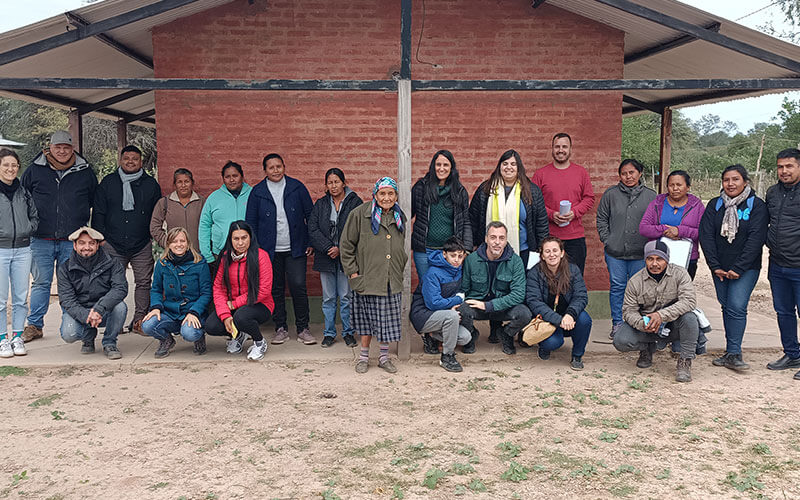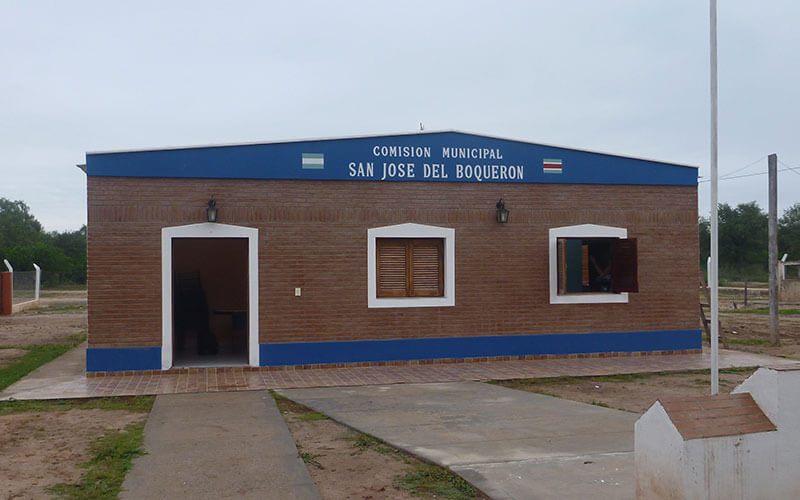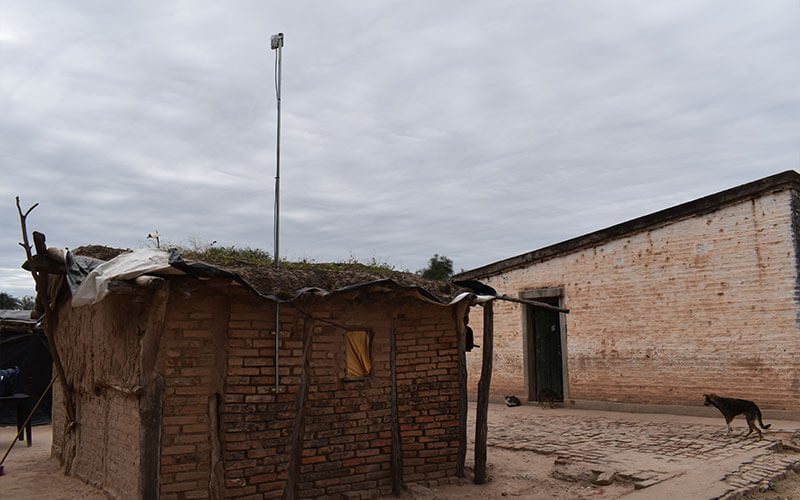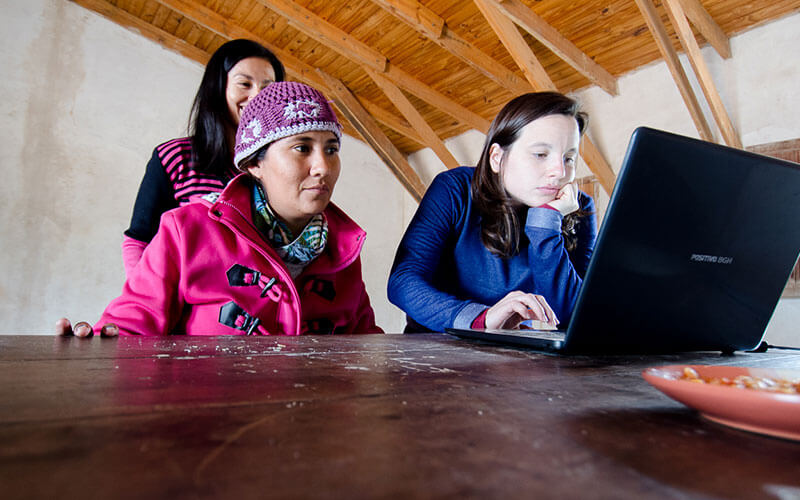Throughout the country, and especially in the Argentinian Northeast, there are rural areas with no supply of connectivity services. The lack of access to the new information and communication technologies (TICs) plays a part in deepening the structural poverty and isolation and thus limiting the access to rights, education and health, affecting economic and social development, as well as the general life quality of those people.
In the year 2014, Alimentaris started to forge alliances and research that would allow for the design, testing and implementation of technology solutions and operating models that would help guarantee access to connectivity with the greatest possible efficiency and with a clear strategy of sustaining the provided service.
During the first phase, Alimentaris was engaged in the design, test and implementation of solutions aimed at providing connectivity to rural homes and isolated areas. This first local service-providing pilot was implemented in José del Boquerón (Santiago del Estero) with 132 users, including families and institutions.
This first pilot, which is still currently in service, offered important learning lessons on the need for investment on infrastructure in coordination with public policies and non-reimbursable contributions, as well as the need for social construction of the models for their replicability as a requirement for success and sustainability.
At the second stage, since 2019 Alimentaris, through “Sol rural”, financed the refurbishment of “Namun” Centers so that they would be able to strengthen and increase their coverage. Finally, since the year 2022, Alimentaris joined the group of partners and promoters of Namun Connected Women, a connectivity initiative that promotes access to and adoption of disrupted solutions by means of rural connectivity and innovation, with special focus on women as change agents.
With the support and encouragement of Fundación Alimentaris, the systematization of different connectivity business models is aimed to be achieved and implemented in several communities in the Great Argentinian Chaco, which will allow the reduction of scalability and replication cost, not only at a community level but also for household connections. Consequently, this will promote the economic, social and environmental development of those families who access the service.
Throughout the years, the Partners that worked on connectivity solutions have been: Gran Chaco Foundation, Avina Foundation, “Potenciar”: a collective impact platform, Sol Rural, BID/LAB, Communication National Entity (ENACOM, by its Spanish acronym), LatinAmerican School of Social Science (FLACSO, by its Spanish acronym), International Telecommunication Union (ITU, by its Spanish acronym), Microsoft, EQUALS Global Partnership, Microsoft, among others.








